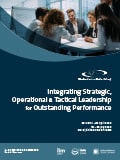Un cours intensif de formation professionnelle sur
Upstream Data Dynamics
Optimizing Oil and Gas Operations through Enhanced Connectivity
Pourquoi choisir cette formation ?
In the dynamic landscape of upstream oil and gas operations, effective management and utilization of data play a critical role in driving efficiency, productivity, and safety. This five-day training course delves into the intricate realm of upstream data dynamics, focusing on how enhanced connectivity solutions can revolutionize operations. Participants will explore the latest technologies, strategies, and best practices for collecting, integrating, analyzing, and leveraging data in upstream activities, ultimately enabling organizations to make informed decisions and unlock greater value from their assets.
Quels sont les objectifs ?
A l'issue de cette formation, les participants seront capables de :
- Understand the fundamental principles of upstream data dynamics and the significance of enhanced connectivity in oil and gas operations
- Learn about various data collection and acquisition techniques, including sensor technologies, remote sensing, and IoT devices, and their applications in upstream environments
- Gain insights into data integration and analysis methodologies, including data management systems, statistical analysis, and predictive modeling, to extract actionable insights from upstream data
- Explore connectivity solutions tailored for remote operations, such as satellite communication systems, wireless sensor networks, and cybersecurity protocols, to ensure seamless data transmission and protection
- Develop optimization strategies for upstream data workflows and processes, leveraging machine learning, AI, edge computing, and other emerging technologies to enhance operational efficiency and performance
- Identify regulatory and compliance considerations related to data management in the oil and gas industry and implement best practices to ensure adherence
- Explore future trends and innovations in upstream data dynamics, enabling organizations to stay abreast of technological advancements and drive continuous improvement in operations
À qui s'adresse cette formation ?
This training course is designed for professionals involved in upstream oil and gas operations, including but not limited to:
- Chefs d'exploitation et superviseurs
- Data Analysts and Scientists
- Engineers (Petroleum, Reservoir, Production, etc.)
- IT and Technology Specialists in the Energy Sector
- Project Managers and Team Leaders
- Decision-makers and Executives in Oil and Gas Companies
- Agents de conformité réglementaire
- Consultants and Service Providers in the Oil and Gas Industry
- Anyone seeking to enhance their understanding of upstream data dynamics and its applications in oil and gas operations
Comment cette formation sera-t-elle présentée ?
Ce cours de formation AZTech utilisera une variété de techniques éprouvées d'apprentissage pour adultes afin d'assurer une compréhension et une rétention maximales des informations présentées. Cela inclut une combinaison de présentations, d'exercices de groupe, de vidéos et de discussions en classe afin d'examiner en profondeur tous les éléments du contenu du cours.
Le contenu du cours
Day One: Introduction to Upstream Data Dynamics
- Overview of upstream oil and gas operations
- Importance of data dynamics in upstream activities
- Introduction to enhanced connectivity solutions
- Key challenges and opportunities in upstream data management
- Case studies of successful data optimization initiatives
Day Two: Data Collection and Acquisition Techniques
- Overview of data collection methods in upstream operations
- Sensor technologies for real-time data acquisition
- Remote sensing and satellite imagery applications
- IoT (Internet of Things) devices for monitoring and control
- Best practices for data collection and quality assurance
Day Three: Data Integration and Analysis
- Principles of data integration and interoperability
- Introduction to data management systems (DMS) and databases
- Techniques for data cleansing, transformation, and normalization
- Statistical analysis and predictive modeling for upstream data
- Data visualization and reporting tools for decision-making
Day Four: Connectivity Solutions for Remote Operations
- Overview of communication technologies for remote locations
- Satellite communication systems and their applications
- Wireless sensor networks (WSNs) for remote monitoring
- Cellular and mesh networks in challenging environments
- Cybersecurity considerations for remote connectivity
Day Five: Optimization Strategies and Future Trends
- Strategies for optimizing data workflows and processes
- Machine learning and AI applications in upstream data analytics
- Edge computing and its role in real-time data processing
- Regulatory and compliance considerations in data management
- Future trends and emerging technologies in upstream data dynamics
Le certificat
- Certificat d'achèvement AZTech pour les délégués qui participent et terminent le cours de formation
VOULEZ-VOUS EN SAVOIRPLUS SUR CE COURS ?
© 2024. Le matériel publié par AZTech présenté ici est protégé par des droits d'auteur. Tous les droits sont réservés. Toute copie, distribution, utilisation, diffusion, téléchargement, stockage (sur tout support), transmission, reproduction ou utilisation non autorisée de tout ou partie de ce plan de cours est interdite et constitue une violation des droits d'auteur.



